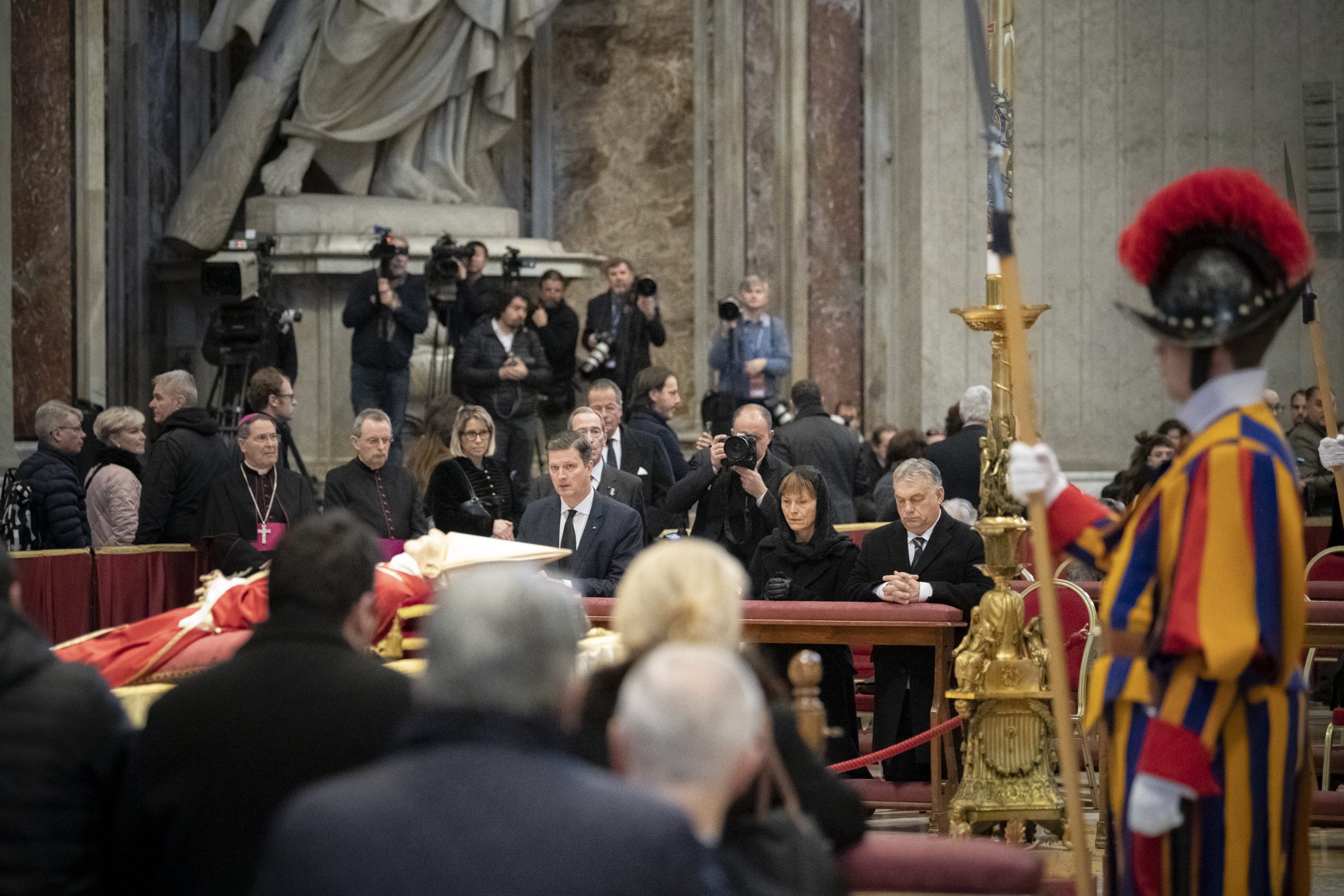
Thank you very much, Your Excellency. Good afternoon everyone.
First of all, thank you, Your Excellency, for the opportunity to be involved in these talks today. The virus imposed a strange style of choreography on our talks, and in all my life I have never sat at such a long table; but the length and depth of our meeting made up for the physical distance between us. We have been cooperating with President Putin for thirteen years, this is the twelfth time we have met, and – given the current international situation – this meeting has obviously been the most important. I also see this visit as a peace mission, because I have been able to tell the President that the European Union is united, and that no European Union leader – not one – wants a conflict with Russia. This is particularly true for us in Central Europe. I was also able to tell the President that our understanding of history is that whenever there has been conflict between the East and the West, Central Europe has always been the loser. The years of the Cold War brought us deep bitterness and much suffering; and so Hungarians – and Central Europeans in general – have an interest in tensions between East and West subsiding, and in doing everything possible to reduce those tensions and prevent a return to the Cold War. To prevent that from happening in the current situation, we need negotiations and dialogue, and I welcome the fact that dialogue is ongoing between Russia and our Western allies. I respectfully asked the President for something which we always ask of our allies: continuation of these negotiations, and implementation of all diplomatic means for the reduction of tensions. What we are able to offer is the Hungarian model. There is a Hungarian model of policy in relation to Russia: Hungary is a member of NATO and the European Union, and we are also able to maintain excellent relations with Russia. This is possible, it can be seen in reality, and Hungary is proof of it. It is true that this is something which requires mutual respect: Hungary has always received respect from President Putin, and we have always given respect to Russia and its leader.
As far as bilateral relations are concerned, although the pandemic made last year a difficult one, it was also the most successful year in the history of relations between our two countries. This is because, through our cooperation, we overcame two huge challenges. The first was the pandemic, against which we needed a vaccine – and, thanks to President Putin’s decision, we were able to vaccinate 900,000 Hungarians with Russian vaccines. The other major issue is the energy crisis; and here – again thanks to the President – the long-term gas supply contract between Russia and Hungary has been extended. It has become clear that in the future long-term contracts will be particularly valuable, and so the volume of gas supplied should be increased rather than reduced. I have now asked the President for an increase of one billion cubic metres in the annual volume of long-term Russian gas supplies to Hungary, and I have received confirmation that we can hold substantive negotiations on this. We will conduct talks on this. In Hungary operations will start soon at a large vaccine factory capable of producing all kinds of vaccines – including the Sputnik vaccine. We hope that we will also be able to reach an agreement on this, enabling us to produce Sputnik vaccines. Preparations for construction work at the Paks nuclear power plant have reached their final stage, and as soon as the last permit is granted – something which is expected soon – the project will automatically move to the next phase: the construction phase. With this we Hungarians will take a decisive step towards becoming self-sufficient in electricity supply, and towards making the Hungarian electricity system climate-neutral by 2030. I thank the President for having approved the setting up of a Russian-Hungarian joint venture which will aim to play a role in the operation of a large new container terminal on our border, the Ukrainian-Hungarian border. This container terminal will be opened in the near future. Hungary’s geographical location is a favourable one, making it a key entry point into Europe for goods from the East, and this Russian-Hungarian joint venture will help us in this. Finally, I asked the President to make it possible for more Russian passenger planes to come to Hungary. This is because all such planes are now fully booked, and if there were more flights many more Russian tourists would come to Hungary. We have received a promise on this. And I have also asked the President for direct flights to Budapest from two more cities: Yekaterinburg and Kaliningrad. The President has promised us further negotiations on this.
All in all, I would like to confirm what you have heard from the President: Russian-Hungarian relations are balanced, positive and constructive. Hungary is committed to ensuring that they continue to be so in the future.
Thank you again, Your Excellency, for the opportunity to have these talks with you.


